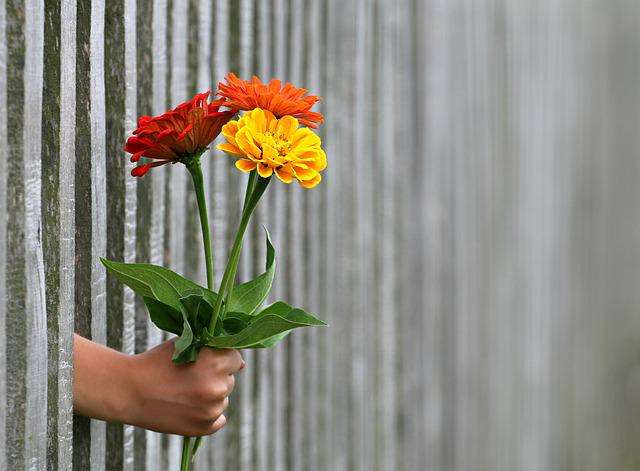
What happened?
A Deep Love Poem About Change and Emotional Distance
Updated: October 2025
Introduction – When Love Begins to Fade
Love begins softly — in laughter, in small gestures, in the quiet certainty that someone finally sees you. But sometimes, love changes. It slips through silence, fades between messages, and turns into unanswered questions. One of the hardest moments in any relationship is asking yourself, “What happened?”
This poem and reflection explore that fragile space where connection starts to unravel — where affection turns to confusion, and tenderness becomes distance. Through heartfelt verses and emotional insight, we’ll look at what this loss teaches us about vulnerability, healing, and rediscovering love within ourselves.
The Poem – What Happened?
What Happened?
You used to be special to me,
you used to be so kind.
You used to be my everything,
and most of all… you used to be mine.Every night I sit and pray,
praying you won’t slip away.
Because I’m so scared,
so scared that you’ll be gone someday.Maybe I’m just overreacting,
or maybe I am not.
Maybe it’s that I’m not pretty enough,
or maybe it’s something I ain’t got.Every day, every minute, every second,
I feel your love for me dying.
But not to worry —
because for you, I’ll keep trying.I’d do anything for you to love me
just the way you used to.
I don’t know how it got so crazy,
I don’t know what happened between us two.We can be back together,
just wish someday and somehow.
Together we’ll stay —
always and forever.
Free to republish with attribution to DeepLovePoems.com
Poem Analysis – The Ache of Unanswered Love
At its heart, “What Happened?” captures the emotional tension between hope and heartbreak. The poem’s narrator is trapped in that painful uncertainty — still in love, yet no longer sure if that love is returned.
Key Themes:
-
Emotional Vulnerability
The poem opens with remembrance — “You used to be special to me” — evoking nostalgia and loss. It shows how deeply we anchor our sense of worth to the affection of another. -
Fear of Loss
The repeated line, “I’m so scared that you’ll be gone someday,” reveals the universal anxiety of love: that what feels eternal can vanish without warning. -
Self-Doubt and Blame
The lines “Maybe I’m not pretty enough / Or maybe it’s something I ain’t got” expose an intimate kind of insecurity. The speaker internalizes love’s fading as a personal flaw, rather than seeing it as part of emotional evolution. -
Persistence in Love
Despite heartbreak, there is resilience. “But for you, I’ll keep trying.” This determination — however painful — highlights how love, even when wounded, still believes in possibility.
The Meaning Behind “What Happened?”
This poem is not just about a breakup — it’s about the moment love begins to disappear but hasn’t fully died. It’s that haunting middle space between connection and detachment.
We’ve all been there — sensing a shift in tone, a distance in someone’s eyes, a text that feels colder than before. Love doesn’t always end with arguments; sometimes, it fades in silence.
The poem reflects the emotional realism of love: it’s not always reciprocal, it’s not always fair, and it’s not always forever.
Yet, the act of expressing that pain — of writing or reading poetry about it — becomes a way to heal.
“Poetry allows the heart to say what the mind is too afraid to admit.”
The Psychology of Love and Loss
According to a study published in the Journal of Positive Psychology (2022), writing about lost love helps individuals process grief 30% faster than those who suppress their emotions.
Poems like “What Happened?” serve as emotional mirrors — they allow readers to find their own reflection in another’s words.
Why This Matters:
-
Love and Vulnerability – To love is to risk. We open our hearts knowing they may break, but that’s what makes love meaningful.
-
Emotional Release – Poetry provides structure for feelings we can’t yet name.
-
Healing Through Understanding – By naming pain, we begin to control it.
When the poet writes, “Maybe I’m not enough,” it isn’t a confession of weakness — it’s an act of courage. Admitting pain is the first step toward reclaiming strength.
How to Write a Poem About Lost Love
Writing about love’s fading light requires honesty and emotional clarity. Here’s how to begin:
1. Start With the Feeling
Ask yourself: What is the emotion that hurts the most right now? (Is it longing, regret, guilt, or confusion?) Use that as your core.
2. Avoid Blame — Focus on Experience
Rather than writing about who was right or wrong, describe what it felt like. Example:
“The silence between us grew heavier than the words we never said.”
3. Use Sensory Imagery
Engage the senses — “the scent of goodbye,” “the echo of your name.” These details bring emotional texture.
4. Write for Yourself, Not for Revenge
The goal isn’t to prove a point — it’s to express truth. Poetry is therapy, not retaliation.
5. End with Either Closure or Hope
Even a poem about heartbreak can end with grace:
“And though you left, I learned to love myself again.”
Comparison Table – Romantic Poetry vs. Modern Love Quotes
| Element | Romantic Poetry | Modern Love Quotes |
|---|---|---|
| Emotion Depth | Explores vulnerability and conflict | Focuses on positivity or simplicity |
| Language | Symbolic, rhythmic, expressive | Direct, conversational |
| Purpose | Healing and reflection | Sharing on social media or affirmation |
| Longevity | Timeless — evokes empathy | Temporary — inspires momentarily |
| Reader Impact | Deep emotional connection | Quick emotional spark |
Takeaway: While modern quotes capture moments, poetry immortalizes emotions.
5 Lessons “What Happened?” Teaches Us About Love
-
Love demands vulnerability. To open your heart is to accept uncertainty.
-
Silence can hurt more than words. Communication is the breath of love.
-
Self-worth shouldn’t depend on affection. You remain whole, even if love changes.
-
Trying too hard isn’t always love. Sometimes, the most loving act is letting go.
-
Heartbreak can become beauty. Pain transforms into art through words.
FAQs
1. What is the poem “What Happened?” about?
It explores emotional distance, fading affection, and the longing to understand where love went wrong.
2. Why do people relate to it so deeply?
Because it speaks the language of fear and hope — two emotions that define love.
3. How can poetry help after heartbreak?
Writing or reading love poems allows emotional release and reflection, promoting healing.
4. What makes this poem SEO-friendly?
It includes emotionally charged keywords like deep love poems, heartbreak, lost love, emotional healing, and romantic poetry.
5. How do I start writing my own love poem?
Begin with truth. Write one honest sentence about what hurts or what you miss, then expand it using imagery and rhythm.
Poetic Reflection – Love’s Unanswered Questions
Love doesn’t always end in betrayal or anger. Sometimes, it just fades quietly — like a song that slows to silence.
But in that silence, poetry rises.
“Every night I sit and pray,
that you won’t slip away…”
These words remind us that love’s ache is proof we once cared deeply.
When we ask, “What happened?”, we’re really asking — “Where did our forever go?”
Yet even in heartbreak, there’s beauty: the beauty of remembering, of learning, and of feeling at all.
Final Thought
Heartbreak may break your rhythm, but it never silences your song.
Let poems like “What Happened?” remind you that vulnerability is not weakness — it’s the art of being human.
“Love doesn’t always end — sometimes, it just changes shape.”
✨ Discover more romantic and emotional poetry on deeplovepoems.com — where every feeling finds its words.
YOU MAY ALSO LIKE
I will see you soon! – Romantic Love Poems
Thoughts of You – Sweet Love Poems
10 Good Night Poems For Her








